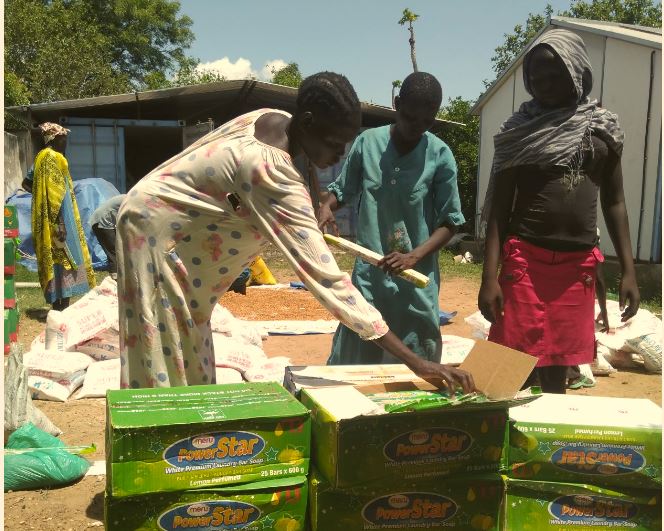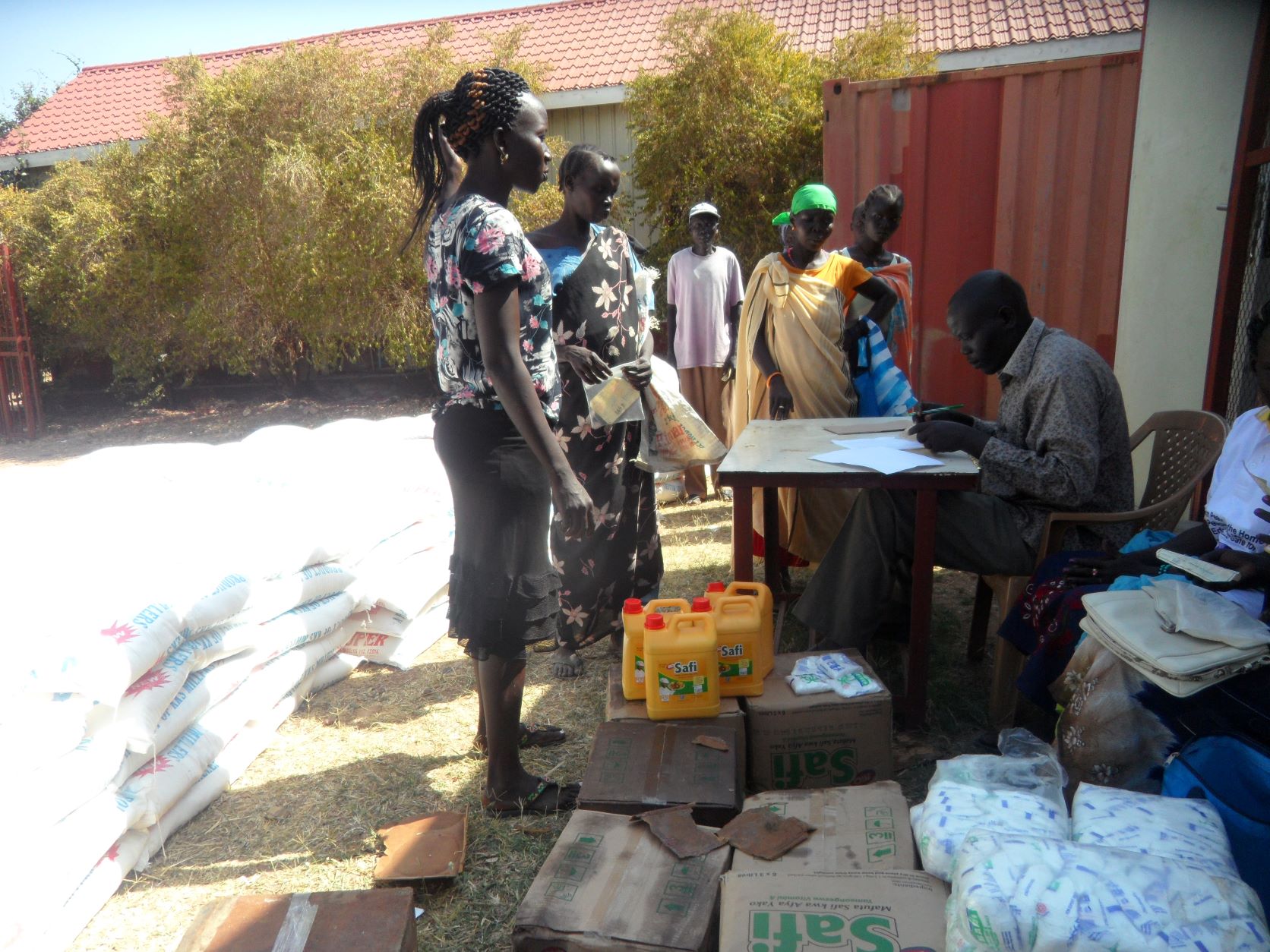SOUTH SUDAN: Food aid at camp for internally displaced persons provided through Salesian Missions funding

Funding from Salesian Missions provides food aid to 230 vulnerable women and children at Don Bosco Gumbo camp
(MissionNewswire) Salesian missionaries at the Don Bosco Gumbo camp for internally displaced persons (IDP) in Juba, South Sudan, were able to provide food, hygiene products and other items to help care for the well-being of those in the camp thanks to donor funding from Salesian Missions, the U.S. development arm of the Salesians of Don Bosco. The camp is run by Salesians from St. Vincent de Paul Parish and is home to 9,742 people, the majority women and children with no husbands or fathers, the elderly, and orphans. The camp was established in January 2014 after the outbreak of civil war in December 2013.
Funding from Salesian Missions helped support 230 of the most vulnerable in the camp for two months. Those who received food assistance and other supplies were orphans, widows and widowers, households headed by children, the psychologically stressed and depressed, and other vulnerable groups. Each person received 44 pounds (20kg) of ground flour, 2.2 pounds (1kg) of salt, 3.17 quarts (3 liters) of cooking oil and 11 pounds (5kgs) of beans per month. They also received soap and other hygiene supplies.

Funding from Salesian Missions helped support 230 of the most vulnerable people in the Don Bosco Gumbo camp for two months.
The food support is important because the prices of cereals and pulses are at record highs—up to 400 percent compared to the average cost. The decline in oil price has crippled the government’s social services sector and negatively affected the population. The humanitarian situation in the country is predicted to worsen in the coming months as a result of COVID-19, the desert locust invasion and continued inter-communal violence.
Fighting between the National Salvation Front (NAS), South Sudan People’s Defense Force (SSPDF), and Sudan People’s Liberation Army-in-Opposition (SPLA-IO) in Lainya County, Central Equatoria State, affected 30,000 people and displaced 5,700 in June. An additional 7,000 people were displaced by inter-communal fighting in Terekeka County, Central Equatoria State. Inter-communal violence and cattle raids in parts of Central and Western Equatoria, Jonglei, Unity, and Warrap states also resulted in the displacement of a further 5,000 people.
“We appreciate our donors who help us ensure Salesian missionaries at Don Bosco Gumbo who are caring for the most vulnerable have the food and supplies they need,” said Father Gus Baek, director of Salesian Missions. “Those who have been internally displaced by ongoing violence in South Sudan are among the most vulnerable. They have lost everything and are turning to Salesian missionaries for safety during this difficult time. Salesians are there to provide shelter and basic needs and help them make a plan for the future.”
South Sudan gained its independence from Sudan in 2011 but has faced an ongoing civil war that started in December 2013 and resulted in a dire humanitarian crisis even before the coronavirus pandemic. Responding to the civil strife is nothing new to Salesian missionaries in South Sudan, who are dedicated to the programs and services they are providing across the country.
South Sudan is expansive and largely rural with 83 percent of the population residing in rural areas. Poverty is endemic with at least 80 percent of the population defined as income-poor and living on the equivalent of less than $1 per day, according to the World Bank. More than one-third of the population lacks secure access to food.
###
Sources:
Photos courtesy of Salesian Missions (contact for usage permissions)
Salesian Missions – South Sudan
World Bank – South Sudan
Any goods, services or funds provided by Salesian Missions to programs located in this country were administered in compliance with applicable laws and regulations, including sanctions administered by the U.S. Department of Treasury’s Office of Foreign Asset Control.





